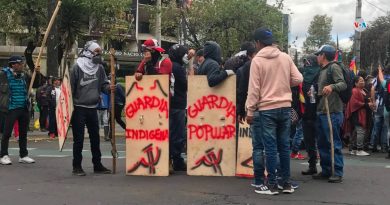Focus on Religious Persecution: Myanmar
By Felipe Bueno
Staff Writer
In a recent report, the United Nations Human Rights Council has hinted that the current attacks against the Rohingya people of Myanmar by their government could very well amount to crimes against humanity. The Rohingya people have a long history of religious persecution, dating back to the British colonial rule of Myanmar in the 19th century. As a minority group in a predominately Buddhist country, Rohingyas have long since suffered under a military junta ruled government who fused together authoritarianism and Buddhist nationalism in order to keep power, Newsweek reports.
This religious persecution has continued to the modern day, and recently, the Burmese government has carried out a series of violent attacks on Rohingya citizens following the 2015 Rohingya refugee crisis. According to Newsweek, Myanmar began its current crackdown, what it calls anti-terrorist raids, following an attack in which an unknown number of Rohingya men killed nine police officers on October 9 of last year. The Huffington Post has attributed this attack to decades of communal tensions coupled with government repression. According to Crisisgroup, the group responsible is Harakah al-Yaqin, a militant group led by a committee of Rohingya émigrés in Saudi Arabia.
According to Time, members of this group, armed with only sticks, spears, slingshots, and a few firearms, brought on the full force of one of Asia’s more formidable national Armies. The day after the border guards were attacked, humanitarian aid was completely suspended, swiftly followed by what is Human Rights Watch is referring to as an ethnic cleansing.
The bloody military assaults have killed at least 86 Rohingya people and the burning of an estimated 1,500 buildings. This persecution has caused a mass migration of 65,000 Rohingya fleeing across the Bangladeshi border, with the U.N. reporting that at its peak, roughly 22,000 did so in a single week. However, emigration has always been difficult for Rohingya as their government denies them official documents that would allow them necessities such as marriage, education, and healthcare. Despite the Burmese government referring to the crackdown as a “clearing operation,” a commission appointed by the government has denied any allegations of genocide in its villages and has prevented western journalists from entering, The New York Times reports.
Tensions between the Muslim minority and Buddhist majority escalated during the 2013 anti-Muslim riots throughout eastern and central Myanmar. According to Reuters, the conflict can be traced back to when a 45-year-old Buddhist woman tried to pawn a golden hair clip in a Muslim-owned gold shop, intending to make a sacrifice to her local monks. The exact details remain unclear, but the woman was reportedly slapped, leading to her husband yelling at the owners, and resulting in him being dragged outside and beaten.
The predominately Muslim neighborhood gathered first as onlookers and then devolved into a mob that soon destroyed the gold shop, and the building in which it was housed. The Muslim community responded by assaulting a monk and lighting him on fire, causing protests to erupt all over Myanmar and further aggravating the existing tension.
This tension between the Rohingya people and Buddhists extends through the decades as in 1982, the Burmese law prevented Rohingya from becoming citizens by claiming that their ancestors must have settled in the country before 1823.
Additionally, in 1994 General Than Shew, the military leader at that time, issued a law which prevented Rohingya children from receiving birth certificates, effectively leaving them stateless. The Rohingya people have come to be viewed by much of the Buddhist majority as “foreign, illicit settlers” in Myanmar who predominately inhabit the Rakhine state in Myanmar. Myanmar not only denies them recognition as a religious group, but also as an ethnic group, excluding them from their official list of 135 recognized groups.
Reuters’ special report has hinted that the tension between Buddhists and Rohingya Muslims may be more economic than religious, as Muslims in Myanmar are often more wealthy than their Buddhist neighbors. Nobel Prize winner Aung San Suu Kyi’s failure to diffuse the conflict both undermines her image as a unifying force in the country, and signals that the issue may be very difficult to end.


